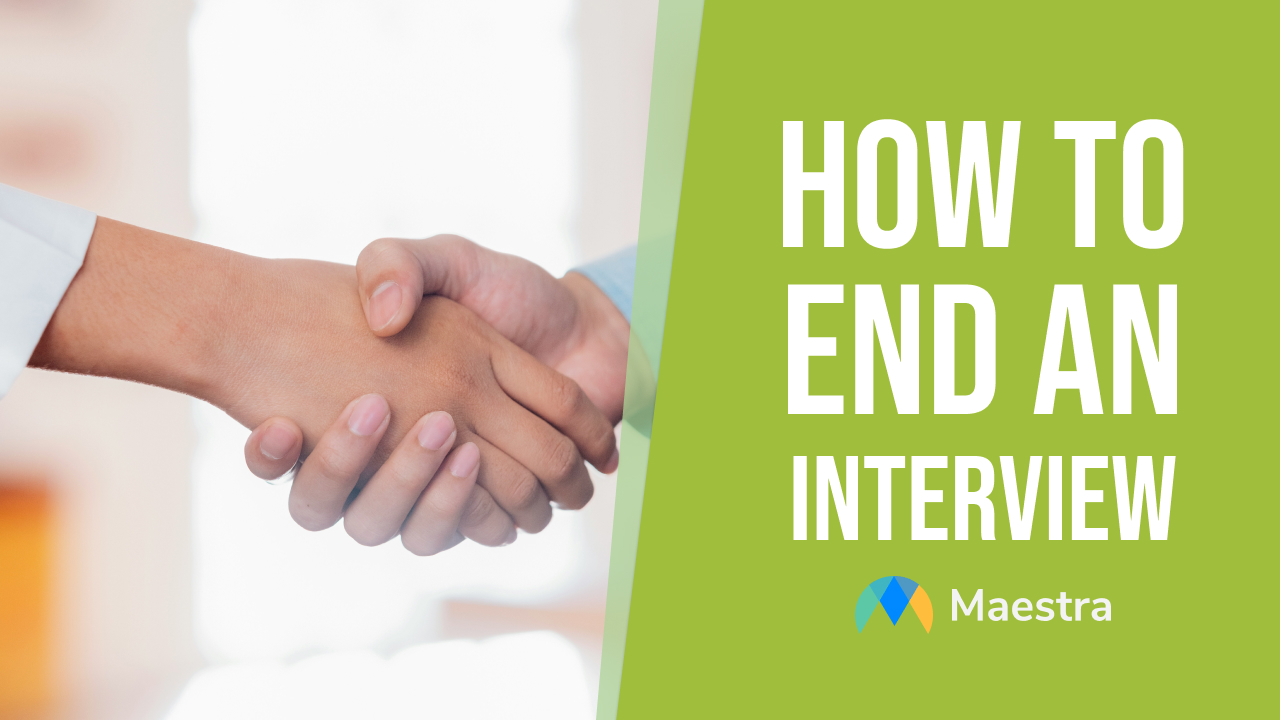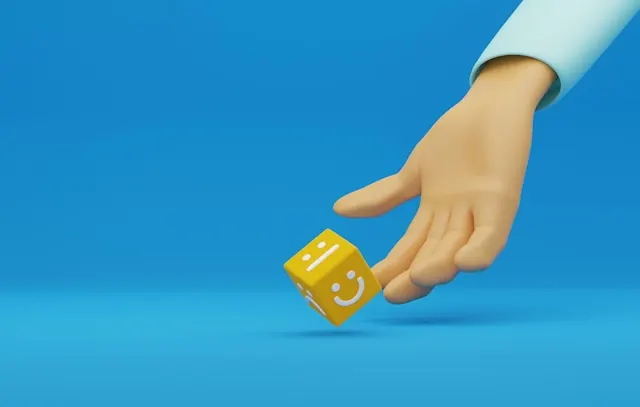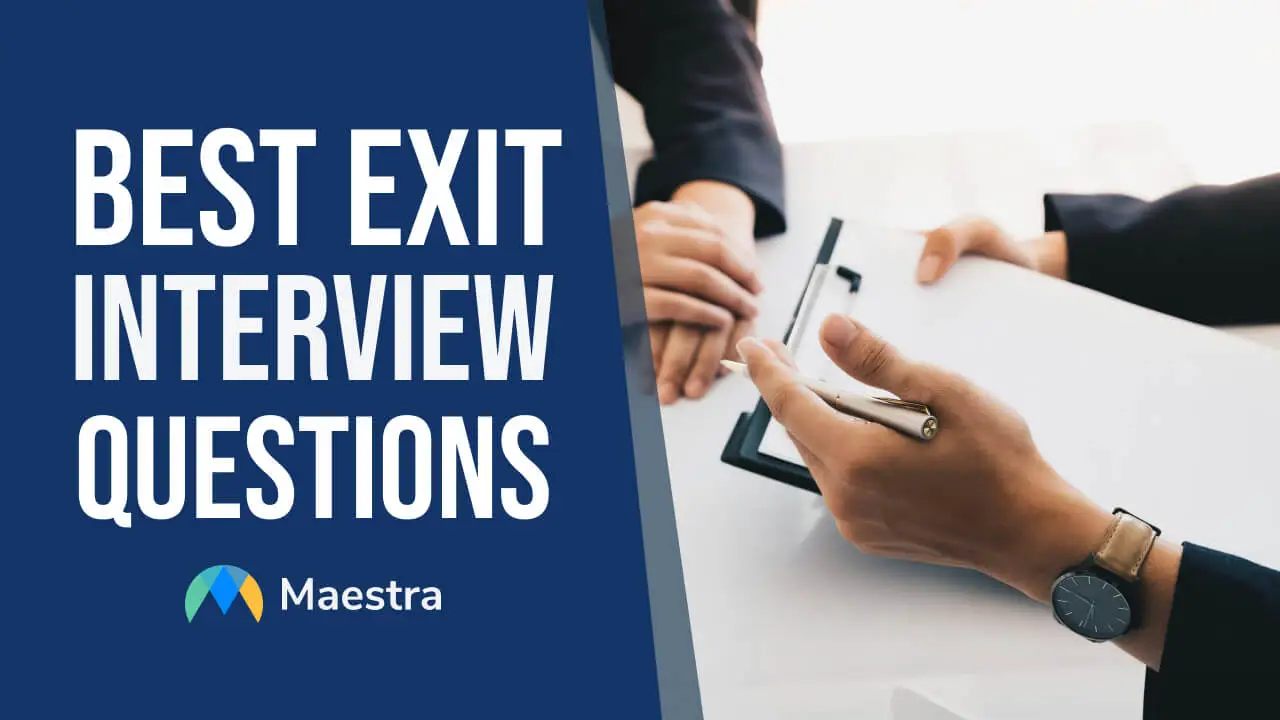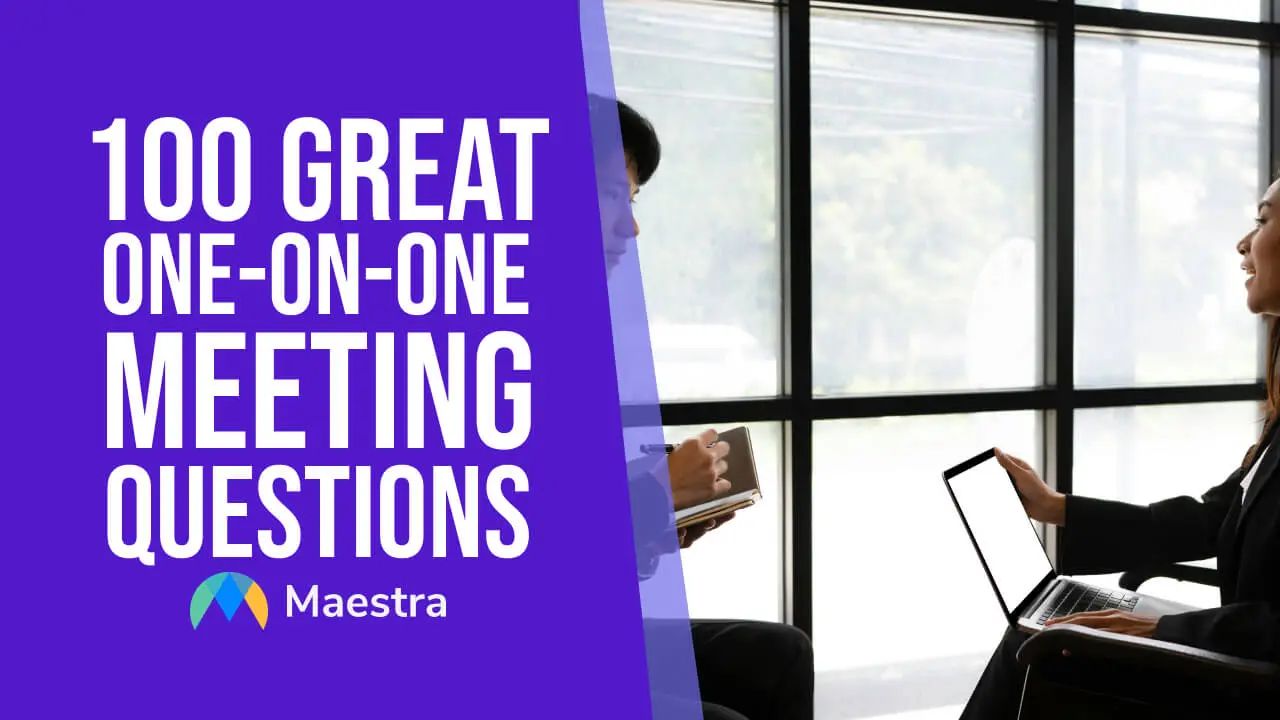How to End an Interview (with Thank-You Email Sample)

Recently, researchers from Stanford and Google DeepMind trained AI agents to simulate human behavior based on qualitative interview data. While this technology can mimic how people act and their values, mastering the human aspects of the interview process is still the foundation of creating genuine connections. Both recruiters and candidates especially need to know how to end an interview, as the conclusion can leave a lasting impression on both parties.
In this blog, we will:
- Focus on how to end an interview, whether you’re the interviewer or interviewee
- Share a sample interview thank-you email that you can send afterwards
Let’s get started.
How to End an Interview as a Recruiter
Mastering how to end an interview as the interviewer is key to maintaining a positive candidate experience and establishing an organized hiring process.
Clearly Explain Next Steps
Clearly explaining the next steps will help the candidate understand the timeline and know what to expect moving forward.
- Inform the candidate when they can expect to hear back. (e.g., “We’ll be making a decision by the end of the week, and you’ll hear from us by Friday.”)
- Explain your follow-up method. (e.g., “We’ll reach out to you with email with next steps.”)
- Explain who will be involved in making the final decision. (e.g., “Our hiring team will review the candidates, and we will also consult with department heads to finalize our decision.”)
- Mention additional rounds if there are any. (e.g., “If you move forward, we’ll schedule a second interview with the department head.”)
- Let the candidate know if the process may take longer. (e.g., “We’re interviewing several candidates, so it may take a bit longer to finalize our decision.”)

Provide Space for Questions
Allowing the candidate to ask end-of-interview questions will ensure they leave the conversation with a full understanding of the role and company.
- Simply ask the interviewee, “Do you have any final questions or concerns before we end?”
- Suggest topics they might want to learn more about, such as the company culture or team dynamics.
- If they ask about a topic that may require further explanation, give honest and thoughtful answers to address their queries.
- Be open to questions about compensation and benefits. (e.g., “If you’d like more information about compensation and benefits, please feel free to ask.”)
- Listen actively without interrupting while the candidate asks their questions, and give them the time they need to fully express their thoughts.
Transcribe Your Interviews with AI
Make the Candidate Feel Valued
Regardless of the outcome, making the candidate feel valued will leave them with a positive impression of the company and contribute to a professional interview experience.
- Genuinely thank the interviewee for their time and sharing their experiences. (e.g., “Thank you for taking the time to meet with us today. It’s been great learning more about your background.”)
- Let them know if their background or experience is relevant. (e.g., “Your expertise in [specific area] could be a great asset to our team.”)
- Acknowledge their specific skills or qualities that stood out. (e.g., “Your experience with data security is impressive, and it aligns well with what we’re looking for.”)
- Offer specific feedback if possible. (e.g., “Your responses to our technical questions were thorough, and you communicated your thought process clearly.”)
- Reaffirm their fit if appropriate. (e.g., “Based on our conversation, you seem like a strong candidate, and we’re excited to move forward in the process.”)
How to End an Interview as the Candidate
By learning how to end an interview as the interviewee, you can solidify your candidacy and close on a confident note.
Summarize Your Key Strengths
Highlighting your key strengths before the interview ends will reinforce why you are a good fit for the position.
- Briefly recap your skills and experiences related to the role. (e.g., “I believe my experience in project management and leading cross-functional teams can contribute to the team's success.”)
- Mention specific achievements that align with the company’s goals. (e.g., “I’ve helped increase team efficiency by 20%, and I think that aligns with your goals around improving operations.”)
- Tailor your summary to address any job requirements discussed during the interview. (e.g., “After hearing about your focus on collaboration, I believe my strong interpersonal skills can increase cooperation and productivity across the team.”)
- Highlight transferable skills. (e.g., “Even though I haven’t worked in this exact industry, my background in data analysis can be valuable in this role.”)
- Share your passion for the company’s mission. (e.g., “I’m excited about your mission to make education more accessible, and I believe my experience in content development can contribute to your cause.”)

Ask Your Final Questions
Engaging with thoughtful questions will demonstrate your genuine interest in the position and company.
- Be respectful of time by asking questions concisely, ensuring that you don’t overrun the allotted time.
- Ask questions that reflect your research of the company. (e.g., “I saw your company just launched a new product. How do you see this influencing future projects or initiatives?”)
- Use open-ended phrasing. (e.g., “Can you tell me more about the company's approach to professional development?”)
- Frame your questions naturally as part of a dialogue. (e.g., “You mentioned team collaboration earlier. I’d love to know more about how that works in practice on a day-to-day basis.”)
- Seek clarification on next steps if you’re unsure. (e.g., “When can I expect to hear back from you?”)
End on a Positive Note
Knowing how to end an interview on a positive note can leave a lasting impression and help you stand out as a strong candidate.
- Maintain professional body language by keeping a confident posture, making eye contact, and offering a firm yet friendly handshake.
- Thank the interviewer for their time. (e.g., “Thank you for the time you took today to discuss the position. It was great learning more about the company.”)
- Reaffirm your interest in the position. (e.g., “After hearing more about the role and the team, I’m even more excited about the chance to be a part of it.”)
- Leave the door open for future communication. (e.g., “I look forward to hearing from you.”)
- Offer to provide additional information. (e.g., “Please don’t hesitate to reach out if there’s anything else you need from me.”)

Sample Interview Thank-You Email
As a candidate, the email you send after an interview plays a key role in showcasing your appreciation and professionalism. Just make sure you keep it brief and focused, as a concise thank you note will be most appreciated.
Below is a sample interview thank-you email that you can personalize for your own use:
| Subject line: Thank You - [Job Title] Interview
Dear [Interviewer’s Name], Thank you for taking the time to speak with me about the [Job Title] position today. It was a pleasure learning more about [Company Name], and I’m excited about the possibility of contributing to your team. I especially enjoyed our discussion about [specific topic discussed] and I believe my background in [relevant experience] would enable me to make a meaningful impact in this role. Please let me know if you need any further information from me. I look forward to hearing from you. Best regards, [Your Name] |
Frequently Asked Questions
What is the best closing line for an interview?
There’s no single best way on how to end an interview, but effective concluding statements often include thanking the guest for their time and summarizing key takeaways. The goal is to finish on a positive, thoughtful note that resonates. Don’t forget to tailor your closing statement to match the tone and purpose of your interview.
What is an appropriate question to ask at the end of an interview?
Some of the best questions to ask the interviewer at the end focus on understanding the next steps or showing enthusiasm for the role. Consider asking questions such as, “What is the timeline for making a decision?” or “What opportunities for growth and development exist in this position?” Such questions can help you gather more clarity and leave a professional impression.
How do you end an interview presentation?
Understanding how to end an interview presentation is crucial for reinforcing your key messages. Wrap up by expressing your appreciation and restating why you’re the ideal candidate for the role. A polished and confident ending will leave no doubt about your readiness.
How long should I wait after an interview to follow-up?
You should generally wait about a week before following up after a job interview. This will give the interviewer enough time to assess other candidates while ensuring you don’t seem too eager. A polite follow-up email will demonstrate your continued interest in the position.
How to cut an interview short?
Knowing how to end an interview when it goes poorly is an important skill. If you sense the conversation isn’t going well, you can politely steer it toward a conclusion by thanking the interviewer for their time. Always remain graceful in your closing remarks, even in difficult situations.
Summary
This blog provided guidance on how to end an interview effectively whether you’re a recruiter or candidate. It also included key questions to ask at the end of the interview for both parties and shared a sample thank-you email for interviewees to send afterward.
Here are our three golden rules for ending interviews like a pro:
- If you’re the interviewer, make the candidate feel valued by expressing gratitude for their time and highlighting their relevant skills or experiences.
- If you’re the interviewee, ask thoughtful questions to demonstrate your interest in the role and company.
- Whatever your position in the interview, always end on a positive note by maintaining a professional tone.
Remember, how you end an interview can be just as important as how you start.


